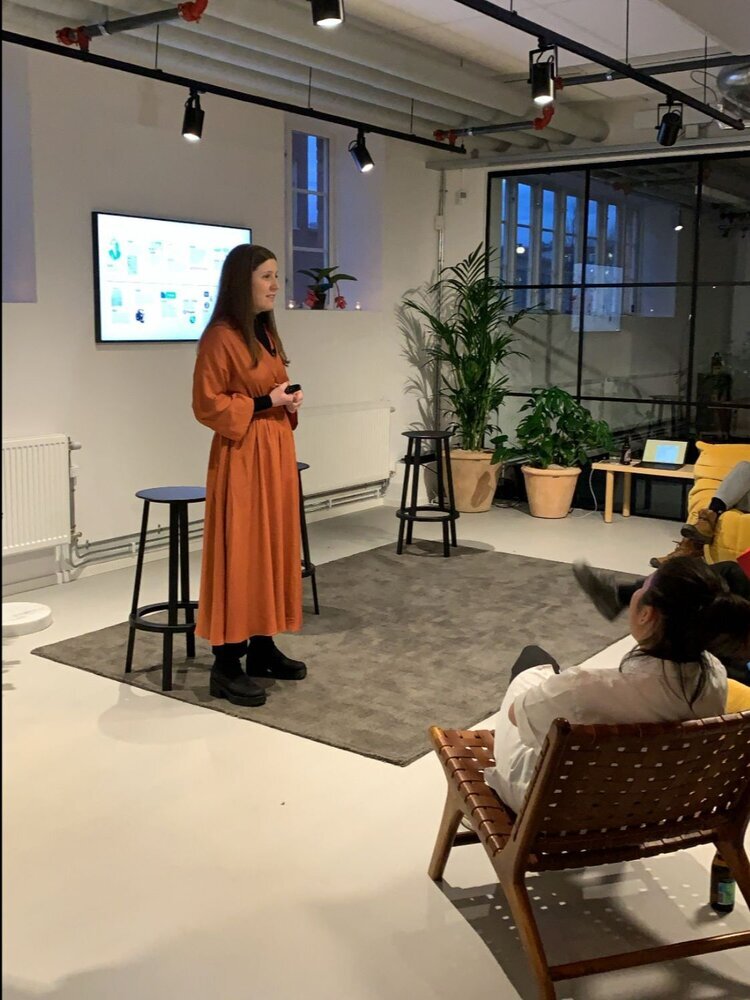Tomorrow Club #2: Purpose
The second edition of Tomorrow Club was filled with critical reflections, intense discussions and of course, pizza & drinks. This time Schibsted’s AI specialist Agnes Stenbom steered the ship of discovery, shedding light on ‘Responsible AI’ and Schibsted’s experimentation with it. Not to forget the collection of answers and even more questions around purpose on the wall.
Participants in front of the Purpose wall
So, is it possible to embed human purpose into the DNA of today's and tomorrow’s technology? As Artificial Intelligence advances, the opportunities to scale smart information-fuelled tech grow — and so do the ethical conundrums.
Therefore, it seems that the key when working with AI is not to define and implement one true purpose (however tempting it may be to try), but to define and implement agile approaches together with the components that make us human in the first place.
“Being experimental means it’s inherent that you are allowed to fail”
As Agnes put it so perfectly, we must allow ourselves to fail. Truly experimenting with something new means we make mistakes, and that's a vital part of the learning journey. The key is to keep an agile approach to responsibility, gather diverse perspectives, use speculative models and be transparent about what you do.
Agnes Stenbom, AI Specialist at Schibsted talking about Responsible Data & AI
So, where does this leave us in our roles as (future) business leaders, customers or also just as a part of society? What is required from us to help the world evolve for the better (whatever that is) considering new emerging technologies such as AI and robotisation? Most of us viewed our purpose as an intrinsic compass of our own values influenced by society, the environment, technology and other factors such as love and curiosity. Our expectations are straight-forward and simple: Transparency, empathy and critical reflections. And not to forget, transferring this knowledge to the future generation.
Create Director Joe Coppard wrote a little something on prototyping purpose in the age of AI, make sure to check it out.
Do you want to join the Tomorrow Club? Sign up here.



